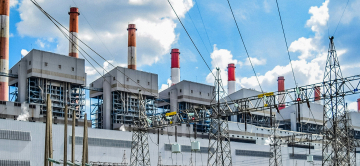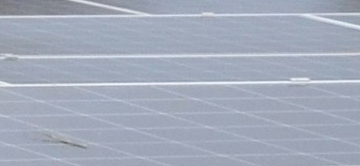BP and TotalEnergies have acquired the right to install and operate 7 gigawatts (GW) of wind turbines in the Baltic and North Seas for 12.6 billion euros (Federal Network Agency, Bundesnetzagentur, 12/07/2023). For WindEurope, an association promoting wind energy in Europe, this payment to the German government is counterproductive, and the procedure for allocating rights needs to be radically reformed. What are WindEurope's arguments worth?
Allocation procedures
When a small number of candidates come forward to acquire an asset that is available in limited quantities, whether privately or publicly owned as in the case of maritime zones, the asset can be allocated in one of three ways. Firstly, by drawing lots, which has the advantage of fairness, but does not guarantee that the winners will be the best able to make the most of the lottery object. Secondly, through an administrative procedure, often dubbed as "beauty contest", the outcome of which depends on the competence and objectivity of the members of the selection committee. Finally, through auctions, which oblige the bidders to disclose their estimate of the value of the object to be auctioned, and enable the seller to cash in revenues. The German government used an auction procedure to award four offshore sites for wind farms, three with an individual capacity of 2 GW in the North Sea and one with a capacity of 1 GW in the Baltic Sea.
Candidates competed for each site by submitting their request for public aid per kilowatt-hour produced, with the lowest request winning the auction. At the end of this phase, however, it became clear that eight candidates for the three North Sea sites and nine for the Baltic Sea site were requesting zero subsidy. To break the tie, the Federal Grid Agency launched a dynamic procedure under German law (WindSeeG): at each site, the remaining bidders had to announce how much they were willing to pay per megawatt (MW) of power to be installed. Bids were made by ascending online auction in a succession of hourly sessions. Bidders had to offer a minimum of 30,000 euros per MW in the first round, and then, in each subsequent round, increase their bid by the same amount until the first recorded abandonment. From the first withdrawal onwards, bids were made in increments of €15,000/MW. Depending on the site, it took between 55 and 72 sessions to close the market. The winners were BP for 2 sites in the North Sea and TotalEnergies for the other two sites. Winning bids ranged from €1.56 million/MW to €2.07 million/MW.
WindEurope objections
The protocol in force in Germany for the allocation of offshore sites is viewed very critically by the WindEurope association, which is calling for the abolition of these "negative auctions". Its main objection is that they generate additional costs that offshore wind farm developers will have to pass on, either by seeking to reduce construction and operating costs, or by increasing consumer bills. It adds: "All the money paid in negative bidding is money our companies cannot invest in other wind energy projects. European Governments should therefore not follow the German example of negative bidding."
Charging companies to build and operate wind farms is justified by the fact that the equipment to be installed requires large areas of public maritime space. On the other hand, the electricity generated by wind turbines must be transported to the point of consumption. It is planned that 90% of the auction revenue will be assigned to the grid operators in charge of connecting the wind farms to the coast, in 20 annual instalments starting when the wind farms are commissioned, that is in 2030. Regardless of who pay for building the power lines, the wind farm operators or the grid operators, in the end it will always be consumers (or taxpayers) who bear the cost. What's more, payment in instalments makes it easier to settle the financial burden. As for the remaining 10% of the auction revenue, 5% is assigned to the federal budget to finance seabed conservation, and 5% to support sustainable fishing activities, both of which are directly affected by the siting of offshore wind turbines.
Accounting and economic gains
For many observers and for the losers in the auction, such as Denmark's Orsted, the price to be paid (on average 1.8 million euros per MW) is excessive. Indeed, from a purely accounting point of view, it is not certain that the operation will be profitable, as rising energy and raw material prices are sharply increasing the cost of offshore installations. Besides, the two winners will have to carry out preliminary studies on their own responsibility before being able to install the wind farms. Current cost escalation is raising profitability issues. For example, on July 20 we learned that Sweden's Vattenfal was suspending its Norfolk Boreas project in the UK (1.4 GW) due to a 40% rise in costs. However, for the two winners of the German auction, the stake goes beyond the purely accounting aspect, since the creation of wind farms also enables the oil giants to green their business portfolio and their image.
For electricity consumers, it's good news to see that some of the profits earned by BP and TotalEnergies during the recent energy crisis are being invested in renewable energies. We'll be keeping a close eye on future renewable energy market openings to see whether this reorientation of the two groups' activities is framed for the long term.
Published in La Tribune, Sept. 6, 2023.





